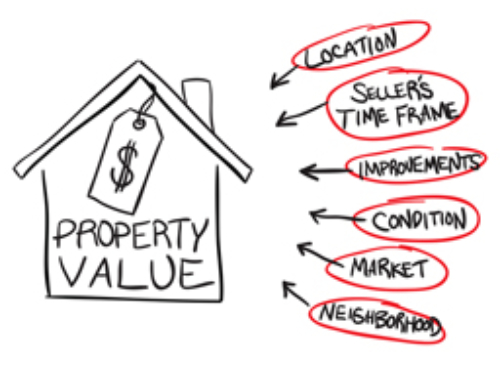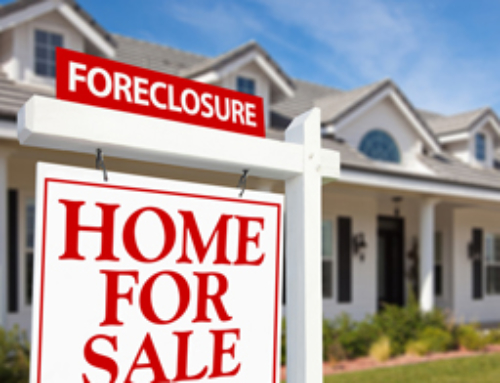 If your house is worth less than the mortgage amount, you’re underwater with your loan. And that means you could be facing a short sale nightmare.
If your house is worth less than the mortgage amount, you’re underwater with your loan. And that means you could be facing a short sale nightmare.
If you want to sell your house, unless you plan to come to the table with enough cash to make up the difference between what you owe and the sales price you’ll have to ask your lender to approve a short sale.
Short sales have been all over the news lately. Sellers like them because they are better for your credit history than a foreclosure on the loan. Buyers like them because they can get property at a substantial discount over the price of comparable homes in the neighborhood.
But there are a number of reasons why doing a short sale might come back to haunt you, whether you’re a buyer or a seller.
Short Sale Problems for Sellers
- The lender can take so long to make a decision that you lose your buyer. It’s common for lenders to take six months or more to approve or reject a short sale. Lenders say they have to contact the investors on the loan and gain their approval to do the short sale, and that takes time. But if it takes too much time your buyer might decide to find another property to purchase and cancel your agreement.
- Your second lender might not agree to the short sale. Second, or third, lenders don’t like to approve short sales, because if the primary lender isn’t being paid in full, it’s unlikely the second lender will. You might get the primary lender to agree to the short sale but have to offer some cash to the second lender to gain its blessing.
- The longer the short sale timeline, the more costs accumulate on the loan. As costs rise, the ever-changing closing figures will reduce the amount of cash your lender will receive. At some point, the lender may reject the short sale simply because it isn’t going to receive enough funds to make it worthwhile to approve the sale.
- You might have to convince your agent to cut her commission. Your short sale lender may refuse to consent to the short sale unless your real estate agent and other parties to the transaction reduce or eliminate their fees.
- Your credit will be damaged in a short sale. A short sale is a pretty significant piece of negative information to have on your credit history, but it’s better than a foreclosure or a deed in lieu of foreclosure. How much better? It’s tough to know how your credit history and credit score will be affected by a short sale, because it depends on how much other good or bad information is contained in your credit history.
- Your lender may come after you down the road. In some states, if you go through a short sale or foreclosure, lenders have the right to pursue a deficiency judgment, a court order that makes you liable for the difference between the price the property sold for and what you owed on the mortgage. Second lenders who participate in HAMP, a program of the Making Home Affordable Program for short sellers, are not allowed to come after the homeowner, because these lenders receive cash from the government to release their claims. If you’re truly destitute, it’s unlikely the lender will come after you. But if you have other income, assets, or property, you must make sure that the lenders involved release you from all deficiency claims. Hire a real estate attorney to make sure that once you close on the transaction, nothing comes back to haunt you.
Short Sale Problems for Buyers
- Existing liens can kill the deal. When you buy a foreclosure, typically the lender has settled, or paid off, all existing liens attached to the property. You should be buying the foreclosed property lien-free. But a short sale property has not gone through the process of cleansing the liens from the title, so beware. You’ll be asked to take title subject to the liens, meaning that you will now be responsible for them. So plan your budget accordingly and try to get everything paid off at the closing.
- Unknown liens can be expensive land mines. A bigger problem is the presence of unknown liens attached to a short sale title. An attorney recently shared a story about a short sale where a $45,000 tax lien cropped up after all the other issues had been worked out and the lender had accepted a price. This sudden $45,000 shortfall almost killed the deal. Ultimately, the lender accepted less, and the deal closed.
- More than one lender means double trouble. It’s bad enough negotiating with one lender. But if the homeowner has taken out a second or third mortgage, you’ll have a bunch of lenders standing in line, each of whom has to agree to the short sale.
- You might wait six months, only to find out your offer wasn’t approved. Lenders don’t appear to be in any hurry to accept a short sale offer. Why? Once the short sale offer is approved, the lender has to write off the missing principal as a loss. For a primary lender who might have some or most of the loan repaid, this might not be that big of a write-off. But a second or third lender will be left with nothing and have no incentive to approve the deal. Any of these lenders, or all of them, might kill your deal.
- You might have to pay more than you agreed or risk losing the deal. You might find out after months of working on the deal that one of the lenders requires more money to close. Everyone in the deal will look to the buyer for the cash. You have to decide what you’re willing to spend to make the deal happen. At some point, the short sale might not be worth it.
- Unforeseen issues can crop up at any time and delay or kill the deal. The longer it takes to approve a short sale, the more issues can arise that will delay or kill the deal. If you’re buying a short sale, you should absolutely hire your own attorney (not the lender’s closing attorney), who can represent your interests in the deal and provide you with cover should you decide not to move forward with the purchase.
Ilyce Glink is a best-selling author, real estate columnist, and web series host. She is the managing editor of the Equifax Finance Blog and CEO of Think Glink Media. Follow her on Twitter: @Glink
READ MORE:
Will the Real Estate Summer Slowdown Mean Lower Prices?
No More Home Buyer Tax Credits: Is Now a Good Time to Buy a House?






